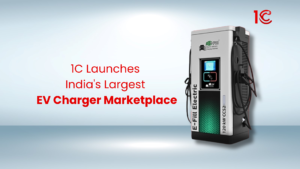
Menu
Menu
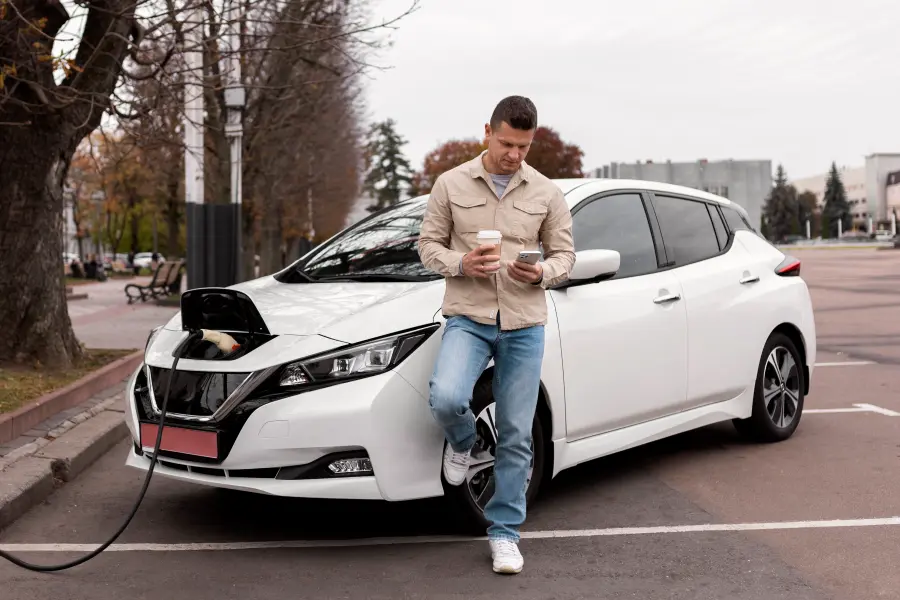
In this article:
The Electric vehicle industry is rising and is bringing various business opportunities and earning potentials along with it. In a vast paradigm of EV-connected businesses, EV charging station is one of them. Setting up an EV charging station is a long-term business, but its returns make it worth all your input.
“How profitable will I be with the EV charging station” you may ask. Well, it highly depends upon the location and various other factors. However, with the surging demand for electric vehicles, the charging stations will remain the cornerstone of the EV market so, I can assure you of a very high chance for EV charging station success.
In this article, we’ll go over the EV charging station cost, requirements (as in, equipment, gadgets, approval, etc.), and maintenance of the charging station. Stick till the end and this will be the only article you’ll need on ‘EV charging stations cost’.
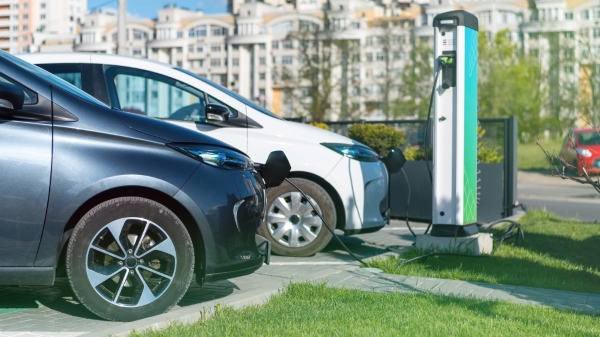
Before breaking down the EV charging station cost, let’s first see which areas we need to invest on:
One time Investment | Recurring investment |
Land (Buying/Leasing) | Software support |
Transformer and power Supply setup | Electricity Usage |
Station Construction/Civil works | Staff Wages |
Charging Points | Station Management |

Charger Rating | Price |
3.3kW (AC) | ₹ 10-15k |
7.2kW (AC) | ₹ 35-45k |
10kW (AC) | ₹ 50-60k |
15kW | ₹ 1.5-2 lakh |
30kW | ₹ 4.5-6 lakh |
50kW | ₹ 10-12 lakh |
Here is a rough estimate, for a public fast charging station with 4-5 chargers:
So, the total cost of setting up a charging station can range from Rs. 24 lakhs to over Rs. 50 lakhs for a 4-5 charger public fast and slow charging station in a good metro city (without the land cost).
For smaller stations or slower chargers, the costs may be lower in the range of Rs. 10-20 lakhs.
Operating costs like electricity, maintenance, and manpower will be additional. Land rent may also be applicable if leased.
For individual home chargers, basic slow AC chargers are available from Rs. 25,000 onwards. Faster home chargers will be over Rs. 1 lakh.
Government subsidies and incentives can help lower the setup costs. But overall, there is significant upfront investment required for setting up EV charging infrastructure.
Make sure these steps are fulfilled while setting up an EV charging station:
Now let’s explore each of them deeply and understand their technicalities in layman’s language.
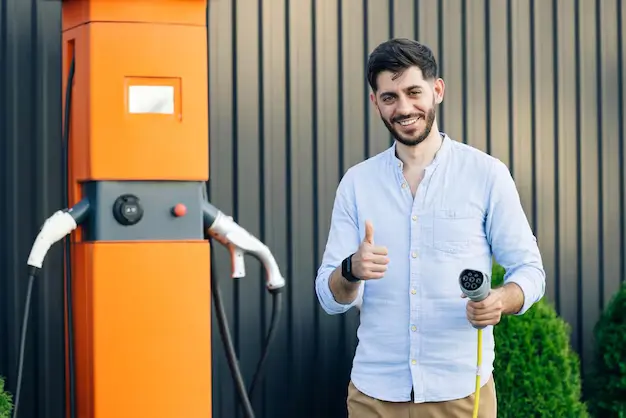
Setting up any business requires a long list of approvals and licenses but thankfully for an EV charging station you don’t need any license or approval, you run a charging station business beside your home or even inside your garage. However, you still need to satisfy the government-set technical standards for running a fully-fledged charging station on a dedicated property.
Here’s the list of all the government policies you need to follow for setting up a charging station:
Read official Document Here: Official Document
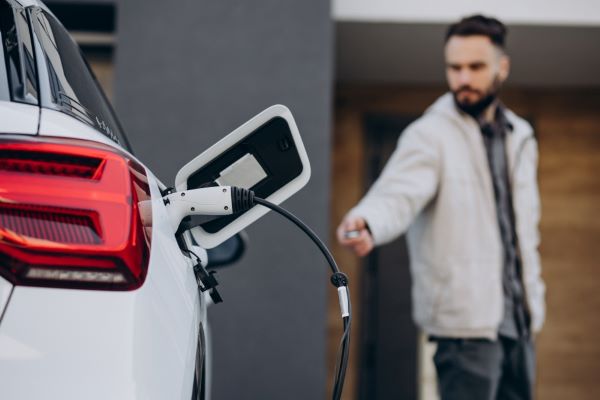
As I said earlier, an EV charging station is an investment-heavy business but keeping a little patience can give you long-lasting returns.
Here’s the list of all the infrastructural requirements for setting up an EV charging station in India:
Exclusive transformer along with all related substation equipment like breakers, protection devices, metering, safety equipment, etc.
2. Power Supply Infrastructure:
33/11 kV power line and cables for supply connectivity and metering.
3. Civil and Construction Works:
Required civil works like foundation, construction of control room, canopy, etc. along with adequate space for vehicle charging and movement.
4. EV Chargers:
Get All Types of EV Charger Here: EV Chargers
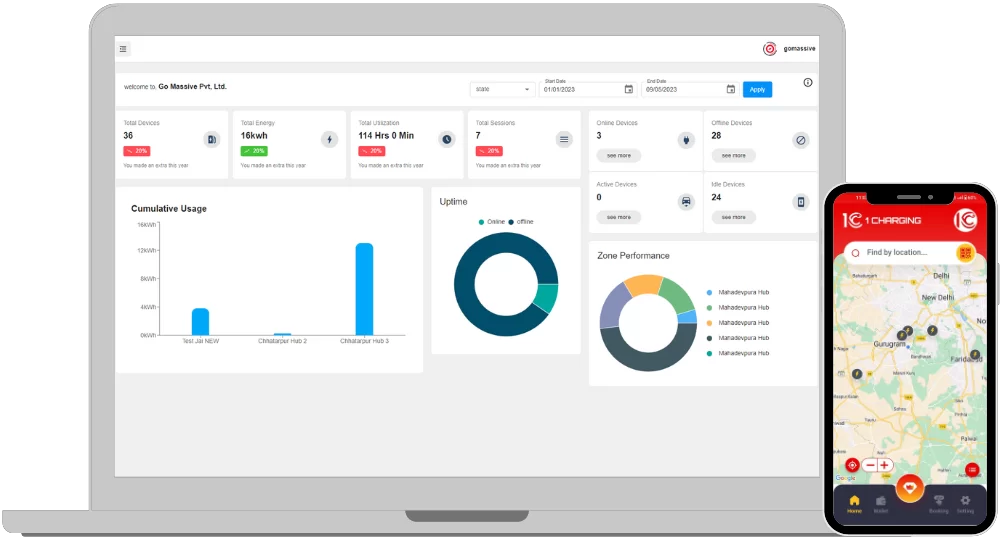
1. Charging Management Software: To remotely monitor and control chargers, manage charging sessions, track usage and energy consumption, etc.
2. Mobile App: For drivers to locate stations, check availability, make bookings, payments, etc.
3. Load Management Software: To optimize electricity load across multiple chargers and avoid peak demand charges.
4. Payment Gateway: To accept various digital payment modes like credit cards, wallets, UPI, etc.
5. Smart Scheduling Algorithms: To schedule and optimize charging session availability based on demand.
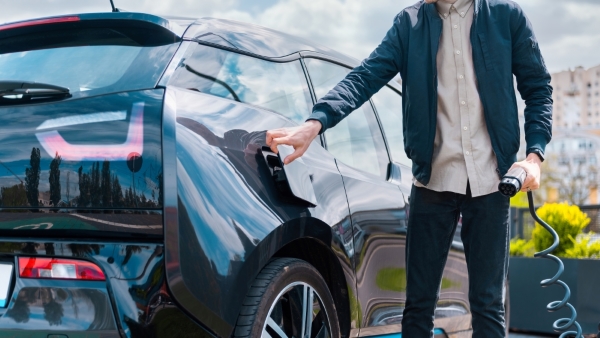
The Indian government has given various incentives for setting up a charging station in India. It varies from state to state but overall we can say that as a part of the electrification push the govt is providing the land for charging stations at a much affordable price and on a priority basis.
Click here to know the charging station incentive in your state: State-wise Charging Station Subsidy | Explained with images
So now let’s set up a demo charging station and identify how much it costs.
The cost of chargers: Installing 2 (7.2 AC) slow and 1 fast charger(30kW), so the chargers can cost you up to 5.76lakh.
Transformer cost: For this configuration, you may need a 55-75kVA transformer which shouldn’t cost you more than 1 lakh.
Setup cost: Including all the civil and electrical works it shouldn’t cost you more than 1 lakh (including raw materials)
So setting up the most affordable EV charging station must not cost you more than 8-9 lakh. You can enter the EV revolution with this small cost.
In summary, setting up an electric vehicle charging station requires significant upfront investment, with costs ranging from Rs. 15 lakhs for smaller stations to over Rs. 1 crore for larger public fast charging stations. The major expenses include the charging equipment, power infrastructure, construction, land costs, and software systems. However, with the rapid growth in EVs, charging stations will be imperative and can provide long-term returns on investment. Government incentives can help lower setup costs. Overall, EV charging is a promising business opportunity but requires strategic planning and substantial capital. The infrastructure built today will fuel the electric mobility revolution in the years ahead.
It can take up to 45-65 Lakhs INR upfront cost to set up an average charging station in Delhi.
Yes, the Ministry of Power (MoP) guidelines specify minimum requirements for the number and types of chargers in a public charging station. For example, it must have at least 1 CCS, 1 CHAdeMO, and 1 Type-2 AC charger.
The MoP guidelines recommend installing chargers as per the ratio – 1 Fast Charger (FC) for every 10 Electric Vehicles (EVs), and 1 Slow Charger (SC) for every 3 EVs. However, providers can install more based on demand.
Some state governments provide capital subsidies, discounted electricity tariffs, subsidized land rates, etc. to promote EV charging infrastructure. Central schemes like FAME also offer incentives.
Yes, banks and NBFCs provide loans for EV charging infrastructure projects. Special schemes or priority sector lending benefits may also be available.
The tariff is regulated by the electricity commission. As per MoP guidelines, it cannot exceed average cost of supply + 15%. The ceiling service charge is set by the state nodal agency.
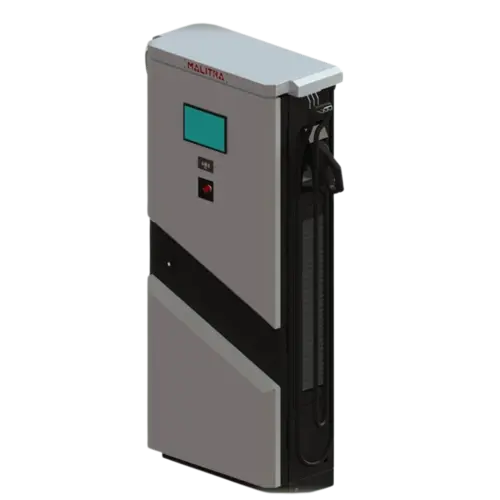

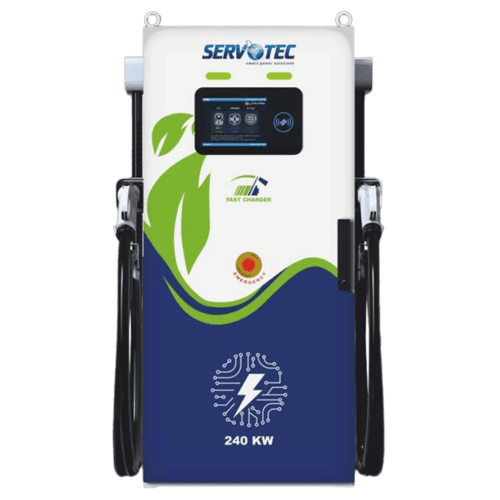

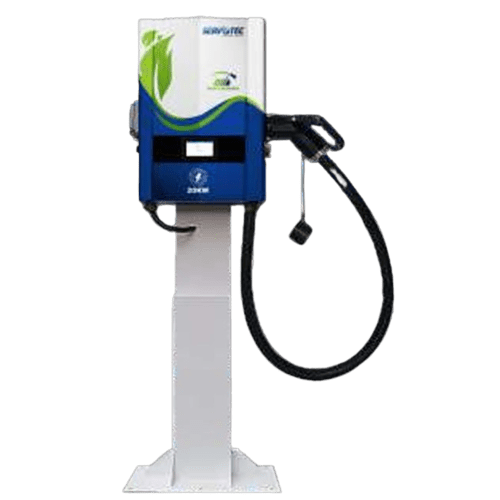

© 2024 Massive Mobility Private Limited. All rights Reserved